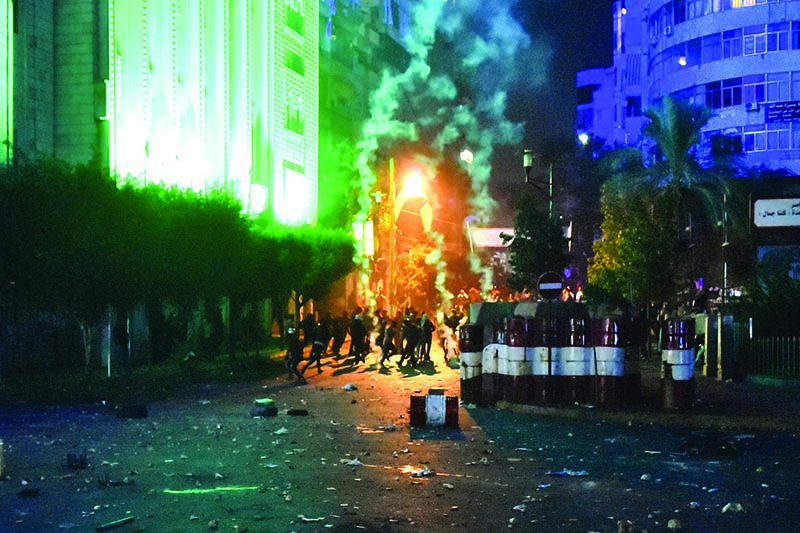
BEIRUT: Lebanon's premier-designate Hassan Diab vowed Friday to form a government of non-political experts to lead the protest-hit country back from the verge of economic collapse. But Lebanon's sectarian politics flared again as Sunni protesters rallied and blockaded roads with burning car tires to protest the nomination of Diab, who has the support of Shiite group Hezbollah and its allies. Diab, a 60-year-old engineering professor, vowed to form a government made of technocrats that should win "full support from Europe and the US" and open Lebanon up to badly-needed Western aid. He rejected the idea that his backing by Hezbollah, which is blacklisted as a terrorist group by Washington, would stand in the way.
"I think the Americans, when such a government is formed, will lend support because it is a government that aims to rescue Lebanon," he told broadcaster Deutsche Welle. Over the past two months, the Lebanese pound, officially pegged to the US dollar, has lost around 30 percent on the black market, while many companies have slashed wages and laid off staff. US envoy David Hale, visiting Lebanon, said Washington was ready to help-provided Lebanon forms a new government marked by "good governance and freedom from corruption".
Diab's promise of an expert government that is above communal politics is in line with the demands of a two-months-old protest movement which accuses the political elite of being inept, corrupt and loyal only to their sectarian groups. The nationwide protest movement has railed against a power-sharing system in force since the end of the 1975-1990 civil war under which the premier is a Sunni, the president a Maronite Christian and the parliamentary speaker a Shiite.
Diab promised to meet on Sunday with figures from the protest movement and asked them to give him "a chance"-despite the fact that the movement has stressed its is spontaneous and has previously rejected dialogue with mainstream politicians.
Hariri supporters, army, clash
The unprecedented protests brought down premier Saad Hariri in late October, deepening the country's political turmoil. Diab was designated on Thursday but in a sign that sectarian power blocs remain paramount, he was not backed by the main parliamentary bloc of his Sunni community.
Diab was to start Saturday consultations with the parliamentary blocs to create his government, but Hariri's party has decided it "will not participate in the next government", according to a close source.
Diab was also angrily opposed by Sunni protesters. For a second straight day, security forces in a Sunni district of Beirut scuffled with crowds of young men, mainly Hariri supporters, who tried to block roads.
On Friday evening Hariri supporters clashed with the army in a western district of Beirut as troops tried to open a main road the demonstrators had blocked, AFP correspondents said.
Protesters hurled stones and fireworks at the soldiers, prompting riot-police to intervene and fire tear gas. In the mainly Sunni northern city of Tripoli, schools were closed and Diab opponents also blockaded roads and called for a general strike.
The unrest early in the day prompted Hariri to call on his supporters to stop the protests, his second such appeal in two days. Diab on protocol visits to ex-premiers Friday met Hariri and other Sunni political figures who had not endorsed his nomination the previous day.
Following the meetings, Diab reiterated he wanted to form "a government of independent technocrats" and added that "Hariri is giving his full support to the formation of this government".
'Freedom from corruption'
Hale, the US undersecretary of state for political affairs, said Washington has "no role in saying who should lead" or make up the next cabinet.
Following meetings with President Michel Aoun, Speaker Nabih Berri and Hariri, Hale said the United States was "ready to help Lebanon enter a new chapter of economic prosperity characterized by good governance and freedom from corruption". "But we, and other friends of Lebanon, can do so only when Lebanon's leaders undertake a credible, visible and demonstrable commitment to reform," the former US ambassador to Lebanon said. Picking a new premier was only the first step, and agreeing on a full cabinet line-up could take time, he added. Diab himself suggested a timeframe of four to six weeks after consultations were due to begin. - AFP









